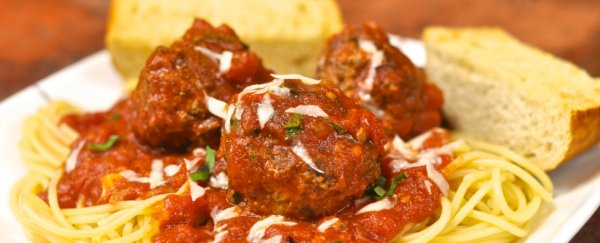A study in post-menopausal women has found that the more sugar and refined carbohydrates they ate - such as white bread and pasta - the greater their chance of developing depression.
While the study is obviously limited because it focusses on just one subset of the population, it involved more than 70,000 women, and provides further evidence that there may be a link between mental health and diets with high glycemic indexes (GI) - the measure of how quickly carbs are broken down and absorbed in the body.
The researchers from the Columbia University Medical Centre in the US looked at data collected by the National Institutes of Health's Women's Health Initiative Observational Study between 1994 and 1998, and then compared them to a follow-up done three years later to see whether there was any link between what participants ate, and whether or not they went on to develop mental health issues.
After controlling for factors such as age, income, and overall health, the team found that the more added sugars, refined grains, and other high GI foods that women ate, the more likely they were to develop depression.
On the other hand, those who ate a lot of dietary fibre, whole grains, vegetables, and non-juice fruit had a significantly decreased risk of becoming depressed. "This suggests that dietary interventions could serve as treatments and preventive measures for depression," the researchers wrote in a press release.
The study also highlighted a potential mechanism through which high GI foods could trigger mental illness. After we eat any type of carbohydrate, our blood sugar levels will rise. But how much, and how quickly, depends on the type consumed. The more highly refined the grains, such as those in white bread, rice and pasta, the higher GI foods will have. This means that they quickly spike blood sugar levels, causing a quick 'high', and then trigger a hormonal response in the body in order to bring this down again - which causes the inevitable 'food coma' feeling after a heavy meal.
But that sugar crash can also make some people feel pretty terrible. "This response may also cause or exacerbate mood changes, fatigue and other symptoms of depression," the researchers explain.
Other research has also suggested that junk food, including refined carbohydrates, may alter the balance of our gut bacteria, which have been shown to play an increasingly important role in not only our digestive health, but also our mental health, anxiety levels, and eating habits.
Further research is definitely needed in order to show exactly how high GI diets can trigger mental illness, and also to find whether the same trend exists in the broader population. But although we don't yet have the full picture, this study is part of a growing body of evidence that suggest what you eat is just as important to your mental health as it is to your waistline.
And the good news is that researchers are also looking into ways we can have our spaghetti Bolognese and eat it too, by identifying cooking methods that lower the GI of foods such as pasta and rice, and make them act more like dietary fibre than refined carbs. Remember, everything in moderation, kids.
The research has been published in the American Journal of Clinical Nutrition.
